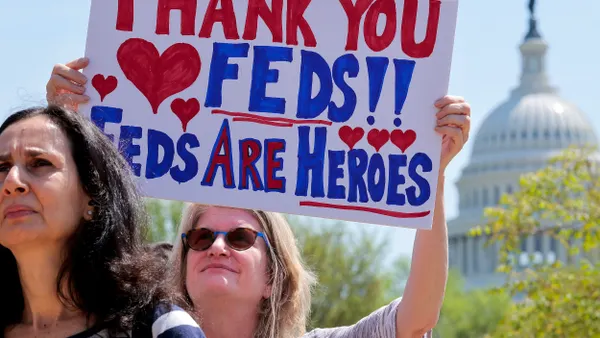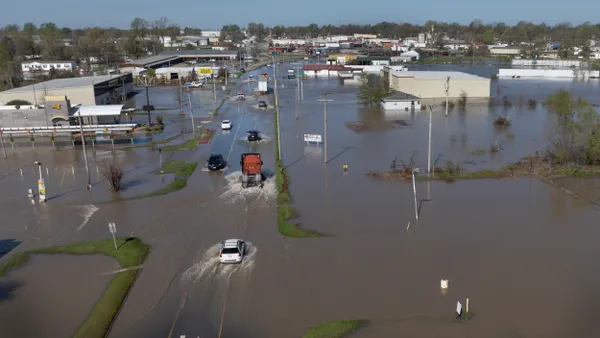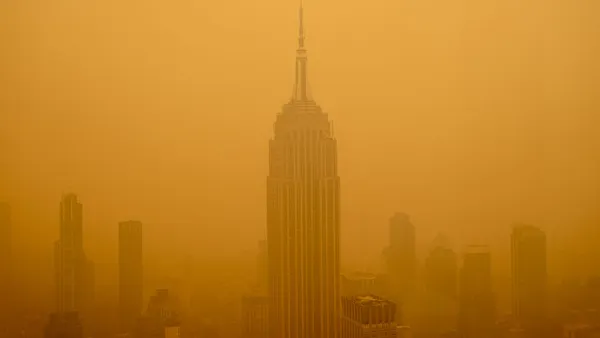Meaningful climate action will require closing funding gaps, the United Nations Intergovernmental Panel on Climate Change highlighted as part of a report it released earlier this month.
There is sufficient global capital and liquidity for necessary steps to limit the warming of the planet to below 2 degrees Celsius, but the flow of finances toward addressing climate change is "three to six times lower" than the levels needed by 2030 to reach that goal, according to the UN group. Getting the needed funding would require "clear signalling" from governments and the international community and a stronger alignment of public-sector finances and policies.
Cities — both as financiers themselves and as hubs for business and activity — are an important part of that equation, particularly as they represent about 70% of the world’s CO2 emissions.
“There's been a lot of experimentation in the last years from many different cities on what they can do to promote climate investment,” said Bella Tonkonogy, director at the Climate Policy Initiative, who was part of a team that assessed urban climate investment last year.
Cities have different roles to play in how they can mobilize investments, Tonkonogy explained. For instance, cities can provide funding through their budgets, or they can influence investment by adjusting their procurement standards. More cities may also issue green bonds as a means to support climate initiatives.
Denver residents, for example, voted in 2020 through a ballot initiative to create a climate protection fund that entailed a 0.25% increase in its local sales and use tax. The program was expected to raise up to $40 million per year to help pay for various city climate initiatives, which thus far have included efforts to expand community solar program and a program that increases access to e-bikes.
"In April of 2020, there [were] 10 of us and a budget under $4 million for mostly staff, a little bit for professional services, like studies," Grace Rink, executive director of the Denver Office of Climate Action, Sustainability and Resiliency, recently told Denver news station KUSA. "Two years later, we have 37 staff and a budget of over $45 million," in part from the Climate Protection Fund.
Within the first five years of the fund, the city intends to increase investments in areas like battery storage and other renewable energy technologies, as well as in upgrading the energy efficiency of homes and buildings.
Cities can also take charge of mobilizing climate investment through a category Tonkonogy described as stewardship. Much investment in a city has nothing to do with the investments the government itself is making, she said. It's about the decisions commercial real estate owners are making, for instance, or the choices individual residents make about whether to use a car or a bike for transportation. "We are also seeing this role for cities as stewards, where they're setting standards and regulations that then enable others to make climate-friendly investment choices," Tonkonogy explained.
Tonkonogy also noted that, overall, more investment goes toward mitigation, or reducing emissions, than to adaptation, or reducing the physical impacts of climate change. The latter can be hard to measure, but cities are picking up on its importance, she said, and they are asking which investment solutions can build resilience to climate change, "which is already happening, as the IPCC report made very clear."
The Center for Climate and Energy Solutions released a report this month laying out how federal, state, local and private-sector leaders can focus on the overlap between climate resilience and economic development goals as a smart way to think about investing. Its recommendations range from creating chief resilience officer positions at the state and local level to having the U.S. Economic Development Administration amend its guidance for comprehensive economic development strategy "to require more robust analysis of physical climate risks and how resilience opportunities can support local and regional economic growth."











